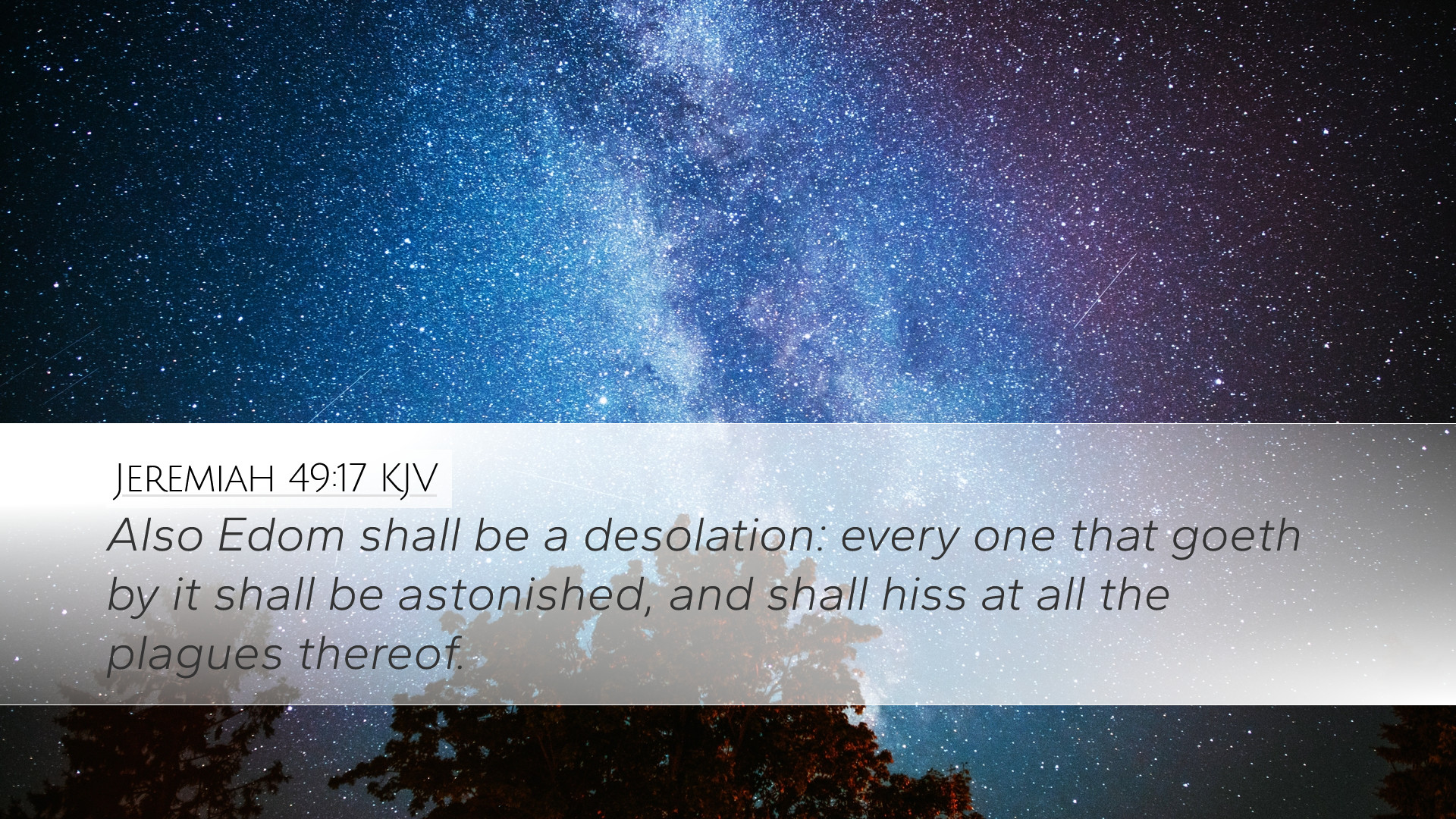Commentary on Jeremiah 49:17
Jeremiah 49:17 reads, "Edom shall become a desolation; every one who passes by it shall be horrified and shake his head." This verse serves as a poignant reminder of God's judgment against Edom, a nation often representative of pride and animosity towards Israel. The insights gleaned from various public domain commentaries, including those of Matthew Henry, Albert Barnes, and Adam Clarke, provide rich theological understanding and historical context that benefit pastors, students, theologians, and scholars alike.
Historical Context
The context of Jeremiah's prophecy often revolves around the impending destruction that would come to many Gentile nations, including Edom. The Edomites, descendants of Esau, had a long-standing animosity towards Israel, the descendants of Jacob. Jeremiah's prophecies aimed to illustrate the inevitable divine retribution that would fall upon nations hostile to God's chosen people.
Theological Significance
This verse emphasizes the principle of divine justice. As Matthew Henry reflects, Edom's pride and violence against Israel earned them a significant rebuke. The desolation foretold indicates God's profound displeasure with the nations that oppose His will and people.
Interpretation of Desolation
The term "desolation" is significant. Albert Barnes expands on this by noting that desolation indicates not only the absence of human habitation but also the presence of divine judgment that alters landscapes and destinies. The imagery of horror and despair in the verse highlights the transformative power of God's judgment, serving as a stark warning to other nations.
Response of Bystanders
The reaction of those who "pass by" Edom—shaking their heads in horror—paints a vivid picture of what divine punishment includes. As Adam Clarke notes, the prophetic words of Jeremiah go beyond merely foretelling destruction; they encapsulate the reverberating consequences of sin that extend to national identities and reputations.
Lessons for Today
From this passage, several key lessons emerge that are relevant for contemporary believers:
-
The Consequences of Pride: Just as Edom's pride led to its downfall, so too does pride create barriers between nations and individuals and God.
-
Divine Judgment: The certainty of divine judgment serves as a sober reminder that God does not overlook the actions of nations. This calls for self-examination and repentance.
-
The Impact of Sin: Sin has far-reaching effects that can alter the destiny of entire nations, highlighting the seriousness with which God regards human affairs.
-
Hope in Restoration: Though judgment may come, it is essential to remember that God's overarching plan includes restoration for His people, a theme prevalent throughout Jeremiah's prophecies.
Conclusion
Jeremiah 49:17 serves as a powerful testament to the themes of divine justice and the stark consequences of pride and animosity towards God and His people. The insights from various public domain commentaries help illuminate the historical, theological, and practical implications of this verse, encouraging believers to reflect on their own lives and nations in the light of God’s eternal truths. As we consider the horror of desolation promised to Edom, we are reminded of the gravity of sin and the call to humility before the Creator. Such reflections are essential for pastors, theologians, and all who seek to understand the depths of scripture and the nature of God’s justice.


